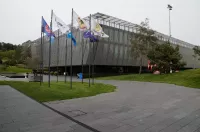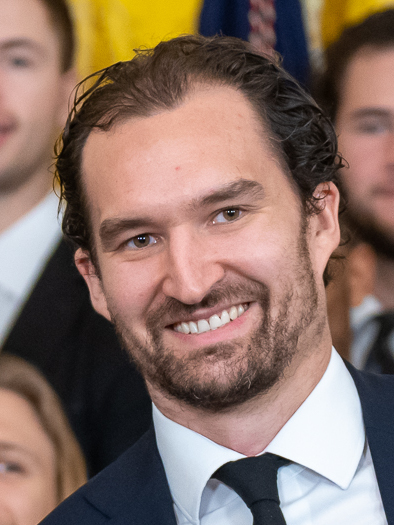Sweden, officially the Kingdom of Sweden, is a Nordic country situated on the Scandinavian Peninsula in Northern Europe. Bordering Norway to the west and north and Finland to the east, it is the largest Nordic country in both area (450,295 square kilometers) and population (10.6 million). The capital and largest city is Stockholm. Sweden has a low population density, with most of its inhabitants residing in urban areas primarily in the central and southern regions. The country's climate varies significantly due to its extensive north-south span.
1905: Union Dissolution
In 1905, Sweden peacefully dissolved the personal union with Norway, which had been in place since 1814.
1909: Selma Lagerlöf Nobel Laureate
Selma Lagerlöf became a Nobel laureate in 1909.
1910: Mass Emigration
By 1910, over one million Swedes had moved to the United States due to factors such as poverty and limited industrialization.
1912: Sweden Hosted Summer Olympics
Sweden hosted the 1912 Summer Olympics.
1914: Industrial Economy Development
Between 1870 and 1914, Sweden began developing the industrialised economy that exists today.
1916: Verner von Heidenstam Nobel Laureate
Verner von Heidenstam became a Nobel laureate in 1916.
1917: Avoidance of Communist Revolution and Democratization
In 1917, Sweden avoided a communist revolution following the re-introduction of parliamentarism, and the country was democratised.
1925: Radio Broadcasts Start
In 1925, licence-funded radio broadcasts started in Sweden.
1930: Stockholm Exhibition Marks Functionalism Breakthrough
In 1930, the Stockholm exhibition marked the breakthrough of Functionalism, known as funkis, which came to dominate in the following decades.
1943: Support for Norwegian Resistance and Rescue of Danish Jews
In 1943, Sweden supported Norwegian resistance against Germany and helped rescue Danish Jews from deportation to Nazi concentration camps.
1947: Hottest Temperature
In 1947, the highest temperature ever recorded in Sweden was 38 °C (100 °F) in Målilla.
1949: First Muslim congregation established
In 1949, the first Muslim congregation was established in Sweden.
1950: Swedish National Men's Football Team Finished Third at the World Cup
The Swedish national men's football team finished third at the World Cup in 1950.
1951: Pär Lagerkvist Nobel Laureate
Pär Lagerkvist became a Nobel laureate in 1951.
1951: Law on freedom of religion
The right to stand outside any religious denomination was formally established in the law on freedom of religion in 1951.
1954: Second Radio Network Started
A second radio network was started in Sweden in 1954.
1956: Television Service Launched
In 1956, the licence-funded television service was officially launched in Sweden.
1956: Sweden Hosted Equestrian at Summer Olympics
Sweden hosted the Equestrian at the 1956 Summer Olympics.
1958: Swedish National Men's Football Team Finished Second at the World Cup
The Swedish national men's football team finished second when they hosted the tournament in 1958.
1962: Third Radio Network Opened
In response to pirate radio stations, a third radio network opened in Sweden in 1962.
February 1966: Coldest Temperature
On February 2, 1966, the coldest temperature ever recorded in Sweden was −52.6 °C (−62.7 °F) in Vuoggatjålme.
1966: Removal of Parents' Right to Spank
In 1966, the parents' right to spank their own children was first removed in Sweden.
1967: Most tram networks were closed
In 1967, most of the tram networks in Sweden were closed, but they remained operational in Norrköping, Stockholm, and Gothenburg.
1969: TV2 Launched
A second channel, TV2, was launched in Sweden in 1969.
1973: Economic Decline
In 1973, like many industrialized countries, Sweden entered a period of economic decline and upheaval following the oil embargoes.
1978: Economic Decline
In 1978, like many industrialized countries, Sweden entered a period of economic decline and upheaval following the oil embargoes.
July 1979: Ban on Corporal Punishment
From July 1979, corporal punishment of children by their parents was explicitly prohibited by law in Sweden, making it the first country in the world to do so.
1979: Non-Profit Community Radio Allowed
Non-profit community radio was allowed in Sweden in 1979.
1980: Reforestation with Deciduous Trees
Between approximately 1870 and 1980, large areas were planted with spruce. During the last 40–50 years, as of 1980, large areas of former spruce plantings have been replanted with deciduous forest.
1987: TV3 Started Broadcasting
In 1987, the first Swedish-language satellite service, TV3, started broadcasting from London.
1989: Kanal 5 Launched
In 1989, Kanal 5 (then known as Nordic Channel) was launched.
June 1990: Riksdag voted for new agricultural policy
In June 1990, the Riksdag voted for a new agricultural policy, which marked a significant shift away from price controls that had been in place since the 1930s. This led to a fall in food prices.
1990: TV4 Launched
In 1990, TV4 was launched.
1992: Fiscal Crisis
In 1992, Sweden experienced a fiscal crisis with a GDP decline of around 5% and a currency run that briefly increased interest rates to 500%.
1992: Education vouchers introduced
In 1992, Sweden introduced education vouchers, treating public and independent schools equally.
1992: TV4 Terrestrial Broadcasts Begin
In 1992, TV4 began its terrestrial broadcasts, becoming the first private channel to broadcast television content from within the country.
1993: Commercial Local Radio Started
In 1993, commercial local radio started in Sweden.
September 1994: MS Estonia Sinking
On 28 September 1994, the MS Estonia sank in the Baltic Sea, resulting in 852 deaths.
November 1994: Referendum on EU Membership
On November 1994, a referendum passed with 52.3% in favor of joining the EU.
1994: Tre Kronor Won Olympic Gold Medal
In 1994, Tre Kronor, the Swedish national men's ice hockey team, won an Olympic gold medal.
January 1995: Sweden Joins the European Union
On January 1995, Sweden became a member of the European Union.
1995: Sweden Hosted FIFA Women's World Cup and World Championships in Athletics
In 1995, Sweden hosted the FIFA Women's World Cup and World Championships in Athletics.
1996: Changes to church membership rules
Until 1996, children automatically became members of the Church of Sweden at birth if at least one parent was a member. Since 1996, only children and adults who are christened become members.
1999: Digital Terrestrial Television Started
In 1999, Digital terrestrial television in Sweden started.
2000: Swedish people with a tertiary degree
In 2000, 32% of Swedish people held a tertiary degree, making the country fifth in the OECD in that category.
2000: Church of Sweden separated from the state
In 2000, the Church of Sweden was separated from the state.
2000: No event. Date does not correspond to an event
no event for 2000
2001: Decrease in church membership
Since 2001, the number of Swedes belonging to the Church of Sweden has been decreasing by 1-2 percentage points each year.
2003: Referendum on Euro Currency
In 2003, the Swedish electorate voted against joining the Euro currency.
2005: National Day of Sweden Becomes Public Holiday
6 June, the National Day of Sweden, has been a public holiday since 2005.
2005: Riksdag voted on matter in the past
In 2005, the Riksdag voted on the matter of whether Swedish should be declared the official language, but the proposal narrowly failed.
2006: Tre Kronor Win Olympic and World Championships
In 2006, Tre Kronor became the first national hockey team to win both the Olympic and world championships in the same year.
2006: Total tax revenue
In 2006, total tax revenue in Sweden was 49.1% of GDP.
2006: Global Gender Gap Report Ranking
The Global Gender Gap Report 2006 ranked Sweden as the number one country in terms of gender equality.
2007: Sweden Third-Largest Music Exporter
In 2007, Sweden became the third-largest music exporter in the world, with over 800 million dollars in revenue, surpassed only by the US and the UK.
2007: Total tax revenue
In 2007, total tax revenue in Sweden was 47.8% of GDP, which was the second-highest tax burden among developed countries.
2008: Göteborg Landvetter Airport
In 2008, Göteborg Landvetter Airport recorded 4.3 million passengers.
2008: Stieg Larsson Second Best-Selling Fiction Author
In 2008, Stieg Larsson was the second best-selling fiction author in the world, with his Millennium series of crime novels published posthumously to critical acclaim.
May 2009: Sweden repealed its "registered partnership" laws
Since 1 May 2009, Sweden repealed its "registered partnership" laws and fully replaced them with gender-neutral marriage.
July 2009: Swedish became Sweden's official language
On 1 July 2009, Swedish became Sweden's official language when a new language law was implemented.
December 2009: Sweden Held EU Chair
From 1 July to 31 December 2009, Sweden held the chair of the European Union.
2009: Stockholm-Arlanda Airport
In 2009, Stockholm–Arlanda Airport recorded 16.1 million passengers, making it the largest airport in Sweden.
2010: UN Development Program prediction of Sweden's Human Development Index
A report from the United Nations Development Program predicted that Sweden's rating on the Human Development Index would fall from 0.949 in 2010 to 0.906 in 2030.
2010: Muslims members of a congregation around
Around 2010, only about 110,000 Muslims were members of a congregation in Sweden.
2012: OECD report on welfare states
According to a 2012 OECD report, Sweden had the second-highest public social spending and the third-highest total social spending as a percentage of its GDP. The country also spent 6.3% of its GDP on education and 10.0% on health care.
2012: Youth unemployment rate
In 2012, the unemployment rate among youth (aged 24 or younger) in Sweden was 24.2%, making Sweden the OECD country with the highest ratio of youth unemployment versus unemployment in general.
2013: Sweden Produces Most Chart Hits Per Capita
According to one source, in 2013, Sweden produced the most chart hits per capita in the world, followed by the UK and the US.
2013: Cultural Diversity and Social Challenges
In 2013, it was estimated that 15% of Sweden's population was foreign-born, leading to social challenges such as the Stockholm riots.
2014: Swedish patents in the US
In 2014, Swedish inventors held 47,112 patents in the United States, making Sweden one of the top ten countries for patents held in the US.
2015: Trade union membership
In 2015, 69% of employed workers in Sweden were organised in trade unions.
2015: European Migrant Crisis Impact
In 2015, Sweden was heavily affected by the European migrant crisis, which led to tightened regulations of entry to the country.
June 2016: Inauguration of MAX IV
The MAX IV facility, costing SEK 3 billion, was inaugurated on 21 June 2016. This facility has strong implications on material research.
2016: Sweden generated 1.98 billion euros from recycling waste
In 2016, Sweden generated 1.98 billion euros, the highest recorded amount, from recycling waste.
2016: Union density among workers
In 2016, union density in Sweden was 62% among blue-collar workers and 75% among white-collar workers.
January 2017: Sweden's population exceeds 10 million
On Friday 20 January 2017, Sweden's population exceeded 10 million for the first time.
May 2017: Unemployment rate
In May 2017, Sweden's unemployment rate was 7.2%, and the employment rate was 67.4%.
2018: Health and medical care
In 2018, health and medical care represented around 11% of GDP in Sweden.
2019: Forest Landscape Integrity Index
In 2019, Sweden had a Forest Landscape Integrity Index mean score of 5.35/10, ranking it 103rd globally out of 172 countries.
2019: European Spallation Source initial operations
The European Spallation Source (ESS) was scheduled to begin initial operations in 2019.
December 2020: New tram line opened in Lund
On 13 December 2020, a new tram line was inaugurated in Lund, expanding the tram network in Sweden.
2020: Sweden generated 1.7 billion euros from recycling waste
As of a 2023 report, Sweden generated 1.7 billion euros in 2020 from recycling waste.
2020: Regional Council Renaming
In 2020, county councils in Sweden were renamed Regional Councils.
November 2021: Magdalena Andersson Becomes Prime Minister
On 30 November 2021, Magdalena Andersson became Sweden's first female prime minister.
2021: Inhabitants of Sweden with a foreign background
In 2021, according to Statistics Sweden, 2,752,572 inhabitants of Sweden, or 26%, were of a foreign background.
September 2022: General Election
The September 2022 general election ended in a narrow win to a bloc of right-wing parties.
October 2022: Ulf Kristersson Becomes Prime Minister
On 18 October 2022, Ulf Kristersson of the Moderate Party became the new Prime Minister.
2023: Sweden generated 1.7 billion euros from recycling waste
As of a 2023 report, Sweden generated 1.7 billion euros in 2020 from recycling waste.
2023: Survey on English-speaking Swedes
In a 2023 survey by Eurobarometer, 90% of Swedes reported the ability to speak English.
2023: Sweden ranked second in the Global Innovation Index
Sweden was ranked second in the Global Innovation Index in 2023 and 2024.
March 2024: Sweden Joins NATO
On March 2024, Sweden joined the North Atlantic Treaty Organization (NATO).
March 2024: Sweden Becomes a NATO Member
On March 7, 2024, Sweden officially became a member of NATO.
2024: Percentage of Swedes belonging to the Church of Sweden
At the end of 2024, 51.4% of Swedes belonged to the Church of Sweden.
2024: Environmental Performance Index Ranking
In 2024, Sweden was ranked sixth in the Environmental Performance Index.
2024: Sweden ranked second in the Global Innovation Index
Sweden was ranked second in the Global Innovation Index in 2023 and 2024.
January 2025: Total resident population
In January 2025, the total resident population of Sweden was 10,588,020.
2025: European Spallation Source construction completion scheduled
Construction completion of the European Spallation Source (ESS) was scheduled for 2025.
2030: UN Development Program prediction of Sweden's Human Development Index
A report from the United Nations Development Program predicted that Sweden's rating on the Human Development Index would fall from 0.949 in 2010 to 0.906 in 2030.
Mentioned in this timeline
Ukraine is a country in Eastern Europe the second-largest on...
Germany officially the Federal Republic of Germany is a nation...

Inflation in economics signifies an increase in the average price...

Football is a family of team sports primarily involving kicking...

FIFA the F d ration Internationale de Football Association is...
France officially the French Republic is primarily located in Western...
Trending

33 minutes ago Mark Stone Defends Mitch Marner, Discusses Leafs, and Single Elimination Tournaments.

33 minutes ago Ovechkin rested for Capitals' playoff push; uncertain about NHL future, retirement rumors surface.

33 minutes ago Nick Suzuki's Nationality, Heritage, Parents, and Role as Canadiens' Captain Analyzed

33 minutes ago Brock Nelson: A Third-Generation USA Hockey Olympian Eyes Gold in Milan

34 minutes ago Vincent Trocheck trade targets: Canadiens, Rangers, Bruins eye potential deal.

2 hours ago Connor Hellebuyck seeks Olympic redemption after NHL playoff struggles with Team USA.
Popular

Jesse Jackson is an American civil rights activist politician and...

Barack Obama the th U S President - was the...

Bernie Sanders is a prominent American politician currently serving as...

Ken Paxton is an American politician and lawyer serving as...

Michael Joseph Jackson the King of Pop was a highly...
WWE Raw a professional wrestling television program by WWE airs...